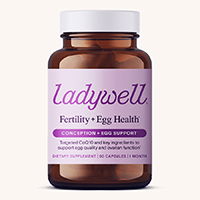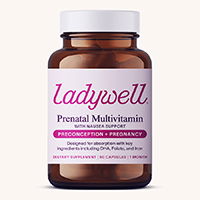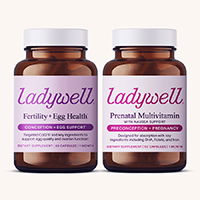Endometriosis is a condition where tissue similar to the uterine lining, known as the endometrium, grows outside the uterus, often affecting organs in the pelvic region. This condition affects an estimated 5-15% of reproductive-aged women in the U.S. and is often underdiagnosed and undertreated. Endometriosis can lead to severe symptoms and fertility issues.
What is Endometriosis?
In cases of endometriosis, endometrial-like tissue grows in areas outside the uterus, commonly on the ovaries, fallopian tubes, and pelvic organs. In more severe cases, it can spread to the bladder or intestines. This tissue behaves like the uterine lining, thickening and bleeding during menstruation. However, because it has no way to exit the body, it can cause irritation, scarring (adhesions), and chronic pelvic pain, among other symptoms.
Common Symptoms of Endometriosis:
- Chronic pelvic pain
- Severe menstrual cramps
- Heavy periods
- Digestive problems
- Back and stomach pain
Causes of Endometriosis
While the exact cause of endometriosis remains unclear, several theories exist:
- Retrograde Menstruation: Menstrual blood flows backward through the fallopian tubes into the pelvic cavity.
- Transformed Peritoneal Cells: Hormonal or immune factors may cause abdominal cells to transform into endometrial-like cells.
- Embryonic Cell Changes: Hormones like estrogen might turn embryonic cells into endometrial cells outside the uterus.
- Surgical Scars: Endometrial cells may attach to scars from surgeries like C-sections.
- Immune System Issues: A weakened immune system might not recognize or eliminate displaced endometrial cells.
Risk Factors for Endometriosis
Several factors can increase the risk of developing endometriosis, including:
- Family history, especially if a mother or sister has the condition
- Starting menstruation at an early age
- Short menstrual cycles (less than 27 days)
- Heavy or prolonged periods
- Low body mass index (BMI)
- High estrogen levels
How Endometriosis Affects Fertility
Endometriosis is a leading cause of infertility, affecting up to 30-50% of women with the condition. Researchers believe this is due to scar tissue on the fallopian tubes, inflammation in the pelvic organs, and hormonal imbalances that can affect the reproductive cycle and egg quality.
Types and Stages of Endometriosis
There are three main types of endometriosis, each affecting fertility differently:
- Superficial Peritoneal Endometriosis: This type involves tissue growth on the peritoneum, the lining of the abdominal cavity. It’s the most common and often associated with mild stages (I and II).
- Endometriomas: These cystic masses, also known as “chocolate cysts,” form on the ovaries and contain old menstrual blood. Endometriomas are usually associated with stages III and IV and can severely affect ovulation.
- Deep Infiltrating Endometriosis: The most severe form, this type involves deep scarring and tissue growth affecting organs like the uterus, bladder, and bowels.
Signs You Might Have Endometriosis
Endometriosis symptoms can vary. While some women may have severe symptoms, others may not experience any noticeable signs. Common symptoms include:
- Painful or irregular periods
- Persistent pelvic pain lasting more than six months
- Pain during ovulation, intercourse, urination, or bowel movements
- Difficulty getting pregnant
Some women remain asymptomatic and may only discover they have endometriosis when trying to conceive.
Can You Still Get Pregnant with Endometriosis?
Yes, many women with endometriosis can still conceive. Mild to moderate cases often have a higher chance of natural pregnancy. However, for those with severe or late-stage endometriosis, medical interventions may be necessary.
What Are My Treatment Options?
If you’re struggling to conceive with endometriosis, several treatment options can support your fertility journey:
- Medications: Hormonal treatments, such as oral contraceptives or GnRH analogs, can help shrink endometrial lesions, improving your chances of conceiving naturally.
- Surgical Treatment: Laparoscopic surgery can remove adhesions and scar tissue, potentially restoring fertility.
- Assisted Reproductive Technologies (ART): If natural conception isn’t successful, options like intrauterine insemination (IUI) or in vitro fertilization (IVF) may be explored.
Conclusion
While endometriosis can affect fertility, it doesn’t necessarily mean pregnancy is impossible. With the right treatment plan and medical support, many women with endometriosis go on to conceive. If you suspect you have endometriosis or are having difficulty getting pregnant, consult with a fertility specialist to explore your options.
Set yourself up for a healthy TTC and pregnancy journey with Ladywell Fertility Supplements.

















































